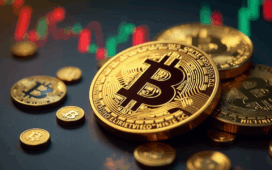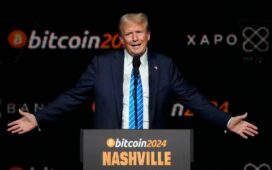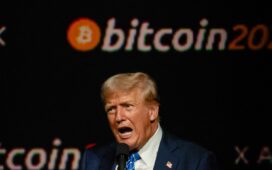- SEC and CFTC leadership reshuffled to favour digital asset regulation.
- Strategic Bitcoin Reserve created, but without new BTC purchases.
- WLFI stablecoin launch triggered calls for an ethics investigation.
The first 100 days of US President Donald Trump’s second term have reshaped the cryptocurrency and blockchain landscape through sweeping policy moves, regulatory changes, and controversial personal involvement.
From the launch of a new meme coin ahead of the Inauguration Day to the creation of a US Bitcoin reserve, President Trump has pushed an aggressively pro-crypto stance, while simultaneously sparking regulatory concern, geopolitical tension, and significant market volatility.
A series of tariffs, executive orders, and personnel appointments have created both opportunity and uncertainty across digital asset markets.
WLFI token launch, SEC shakeup mark start of term
On 20 January, as Trump took the oath of office, his family’s investment firm World Liberty Financial (WLFI) launched the second phase of its token sale.
The non-transferable WLFI token was followed by a wave of crypto-friendly appointments.
Paul Atkins was named as SEC Chair on day one, replacing Gary Gensler, while Brian Quintenz was nominated to lead the CFTC.
David Sacks, a vocal supporter of crypto, was appointed to chair the President’s Council of Advisors on Science and Technology, positioning him as a central figure in both blockchain and AI policymaking.
The WLFI token, initially marketed as a patriotic memecoin aligned with Trump’s return to power, gained traction on platforms like X and Telegram.
The token’s branding heavily featured themes tied to American exceptionalism and conservative values.
Despite being non-tradable and unavailable on major exchanges, the project drew attention from retail investors hoping for eventual utility.
WLFI’s promotional material also teased exclusive access perks for top holders, culminating in a controversial event later in the quarter.
Trade tariffs shake miners, while Bitcoin reserve takes shape
Just weeks into the new administration, Trump’s economic nationalism began to impact the crypto industry.
On 1 February, broad tariffs were imposed on Mexico, China, and Canada, citing security and fentanyl concerns.
Markets dipped in response, with Bitcoin miners particularly affected due to higher import costs for essential hardware.
The situation escalated on 2 April when Trump introduced a 10% minimum tariff on all countries that tax US goods, branding it “Liberation Day.”
Meanwhile, on March 7, the president signed an executive order establishing a Strategic Bitcoin Reserve.
Though the move was intended to formalise the US’s stake in crypto markets, it disappointed many investors by not initiating fresh purchases.
$TRUMP token dinner fuels backlash and ethics probe
Donald Trump’s $TRUMP meme coin surged over 50% in value to reach a $2.7 billion market cap after the project announced that the top 220 token holders would be invited to a black-tie dinner with the former US president on 22 May.
The event, hosted at his private club in Washington, also includes a VIP White House tour for the top 25 holders.
According to Chainalysis, Trump and his allies earned nearly $900,000 in trading fees from the token in just two days following the announcement.
Since its January launch, the token has generated $324.5 million in trading fees through a mechanism that redirects a portion of each transaction to insider wallets.
The Trump Organisation and affiliates reportedly control around 80% of the token supply, which is locked under a three-year vesting schedule.
The dinner offer has triggered backlash from lawmakers and watchdogs, with Senators Elizabeth Warren and Adam Schiff calling for a federal ethics probe, alleging it may constitute “pay to play” behaviour.
Meanwhile, Trump’s broader crypto ventures, including the $MELANIA token and World Liberty Financial, have raised $550 million, with Trump-affiliated entities entitled to 75% of net revenue.
The shift comes amid weakened regulatory oversight of the crypto sector under Trump’s administration.








